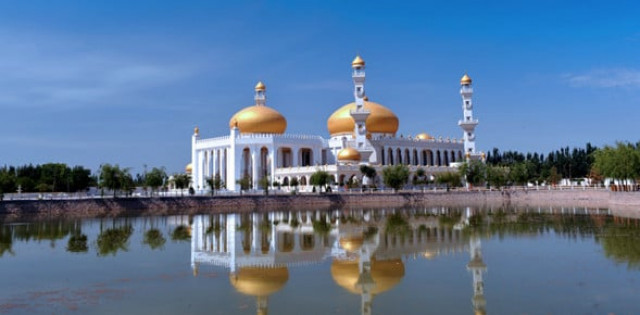China building Muslim theme park to promote state-sanctioned version of Islam
The Hui Muslims are treated more favourably than the Uighurs in the Chinese society

PHOTO: TRAVEL DAILY
China trip: Prosecutor general of China, NAB chief discuss anti-graft strategies
Since 1958, Yinchuan, a city 600 miles west of Beijing, has been the capital of the Ningxia region governed by China’s Hui Muslims. It is part of the government’s larger bid to improve relations with the Arab world by emphasizing shared Sino-Arab history and culture. China has come under criticism for its repressive treatment of Muslims, especially the Uighurs—Turkic-speaking Muslims who live in the country’s Xinjian region.
Last year, Turkey criticised China’s policies, prompting protesters in Istanbul to attack local Chinese establishments. In December, the Islamic State released a chant, in fluent Mandarin, calling on Muslims to “wake up” and overcome “a century of slavery.”
It is in Beijing's interest to promote a more positive image of Chinese Islam. President Xi Jinping published a white paper in January detailing his ambitious plans to increase China’s influence in the Middle East.
CPEC framework: ‘Govt to complete projects on time’
The Hui Muslims are treated more favourably than the Uighurs in the Chinese society. They, unlike Uighurs, speak Mandarin and are ethnically related to the Han majority. Their name is less likely to be affiliated in relation to terrorism or police crackdowns. By building the theme park in Yinchuan, Chinese leaders are trying to shift the focus to this officially approved version of Islam.
So far, the park has drawn few visitors. As Beijing continues to crack down on human rights and free expression, China’s Muslim Disneyland comes off as another expensive, ill-conceived attempt to artificially beautify a defective civil society.
This article originally appeared on Quartz



















COMMENTS
Comments are moderated and generally will be posted if they are on-topic and not abusive.
For more information, please see our Comments FAQ